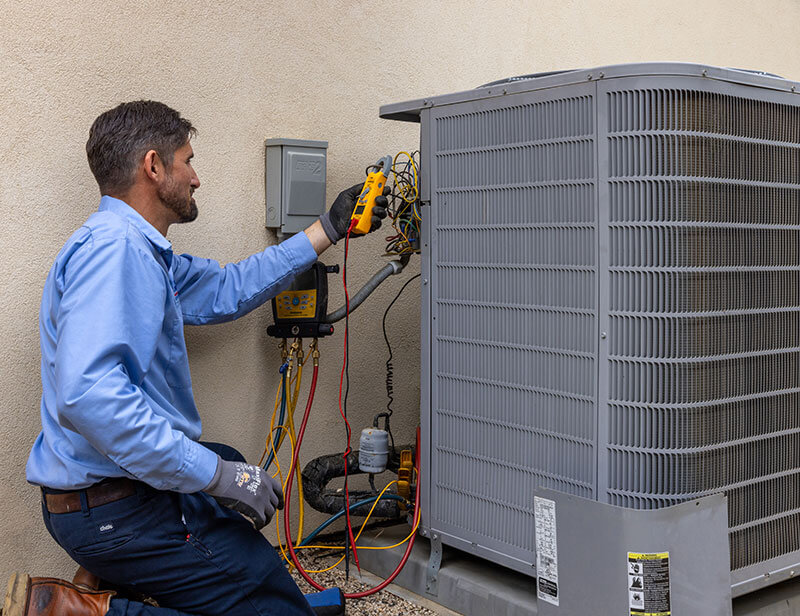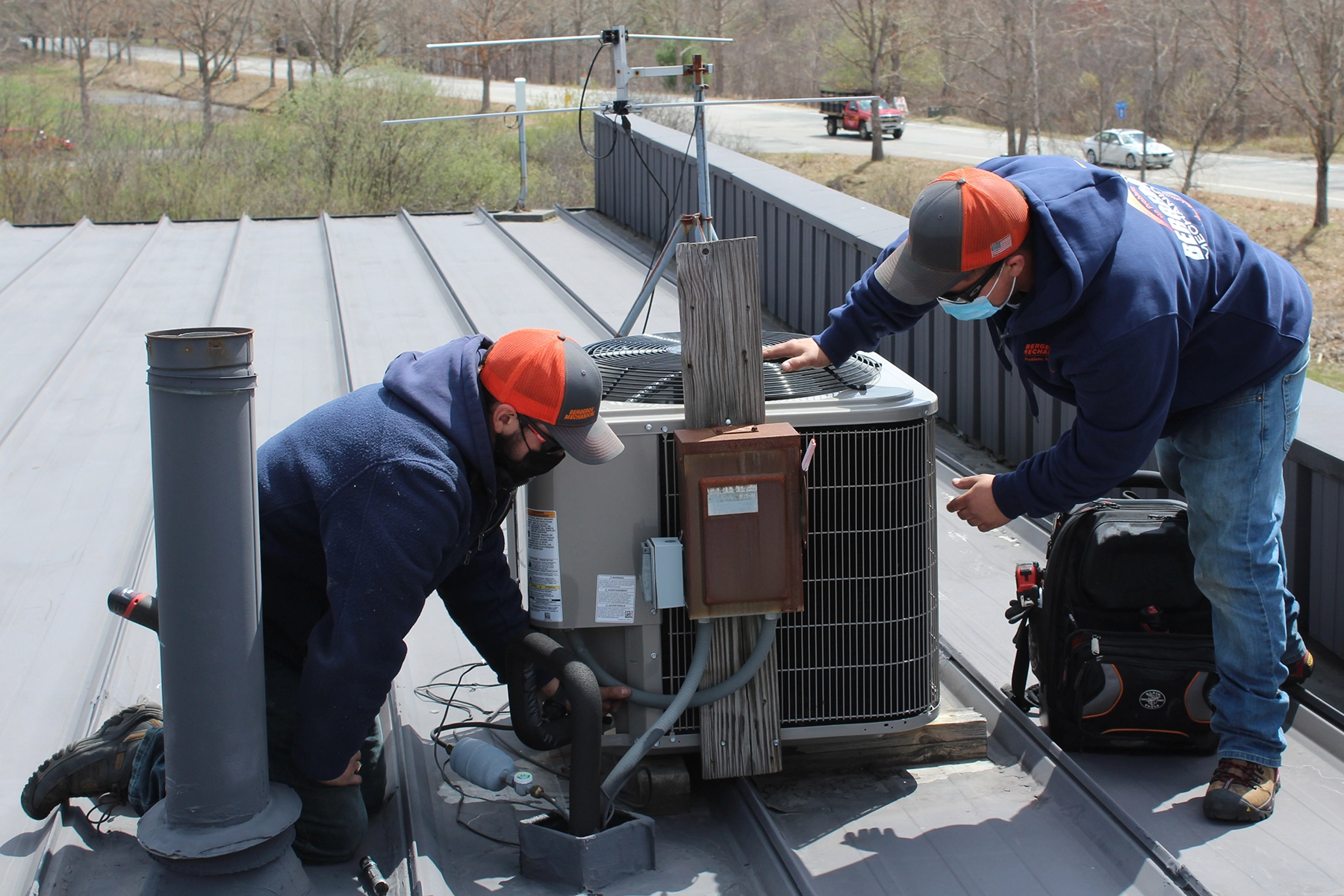The Value of A/c Installation: Key Factors To Consider for a Comfy Indoor Environment
The setup of a cooling and heating system is a critical part in attaining a comfortable and energy-efficient indoor atmosphere. Nonetheless, the process involves a number of nuanced factors to consider that go past merely choosing a system off the shelf. Variables such as the viability of the system for certain building needs, proper sizing to prevent inadequacies, and the knowledge of specialists for a quality installment play essential functions. The adoption of innovative innovations can significantly boost system performance. Comprehending these complexities is merely the start of making sure ideal indoor convenience. What are the crucial elements that dictate successful heating and cooling execution?
Choosing the Right System

When selecting a cooling and heating system, it is crucial to review the capability required to properly warm or cool down the space without exhausting the system, which can cause raised wear and functional expenses. Consulting with a professional a/c professional can offer useful insights right into choosing a system that aligns with both the anticipated use and the architectural layout patterns of the structure.
In addition, thinking about the integration of clever modern technology can boost system monitoring and monitoring, offering higher control and possible expense financial savings. By carefully evaluating these elements, one can ensure the selection of an a/c system that not only meets instant needs yet also adds to lasting functional sustainability and owner comfort.
Comprehending Power Performance
Comprehending power efficiency is vital when considering an A/c installment, as it directly influences both the environmental impact and the operational costs of the system. The effectiveness of a Heating and cooling system is normally suggested by rankings such as SEER (Seasonal Power Effectiveness Ratio) for air conditioners or AFUE (Annual Gas Use Performance) for furnaces.

Purchasing an energy-efficient a/c system not only translates to cost savings however also adds positively to ecological conservation by lowering greenhouse gas discharges. Additionally, several territories offer incentives or refunds for the installment of high-efficiency systems, better boosting their economic allure.
When assessing energy efficiency, think about innovative attributes such as variable rate electric motors, wise thermostats, and zoning capabilities. These innovations enhance the system's capability to get used to differing demand, therefore enhancing power usage. It is important to talk to a/c specialists that can offer understandings into the ideal choices customized to particular environment conditions and usage patterns, making certain optimal efficiency and convenience.
Value of Appropriate Sizing

On the other hand, an undersized a/c system will struggle to get to the desired temperature, specifically during severe climate condition. This can cause continuous procedure, causing greater energy expenses and possible getting too hot of system parts. Additionally, insufficient sizing can lead to inconsistent temperature circulation, creating certain locations of a building to be too warm or too trendy.
To accomplish the right sizing, a detailed load estimation is vital. This involves assessing various factors such as the building's square footage, insulation levels, window types, and regional environment problems. By accurately determining the heating and cooling demands of a room, cooling and heating specialists can suggest systems that ensure efficient operation, decreased energy intake, and boosted interior comfort.

Making Sure Quality Installation
A smooth cooling and heating installation is the keystone of a system's longevity and efficiency. Making certain quality installment involves precise attention to detail, adherence to sector standards, and employing competent experts. The procedure begins with selecting a certified and knowledgeable HVAC specialist. This professional should possess in-depth understanding of varied systems and be proficient at evaluating the particular requirements of the building.
Proper installation goes beyond simple positioning of equipment. It includes precise calibration to guarantee optimum airflow, effective power consumption, and uniform temperature level circulation. This includes accurate ductwork setup, making certain connections are leak-free and secure, which is important for maintaining system effectiveness and interior air top quality.
Additionally, the application of sophisticated analysis devices during installation can discover possible concerns early, protecting against costly repair work and prolonging the life expectancy of the system. The contractor must also make sure that all elements work and that the system conforms how to become a licensed hvac contractor with regional building codes and regulations.
Regular Maintenance Practices
When the structure for a high-performing a/c system is developed with top quality setup, the focus must move to normal upkeep techniques to make sure ongoing performance and integrity. Regular maintenance not only extends the life-span of the system yet also enhances interior air top quality, decreases energy intake, and avoids costly repairs. Essential maintenance tasks consist of consistently transforming air filters, cleaning evaporator and condenser coils, and inspecting the system for leakages or blockages.
Air filters should be replaced or cleansed each to three months, depending upon usage and ecological variables. This basic task can substantially enhance air flow and system performance (emergency ac service Brownwood TX). Cleaning up the evaporator and condenser coils stops dirt accumulation, which can impede heat absorption and air conditioning capacity. In addition, expert specialists should check the system each year, examining for refrigerant degrees, electrical links, and total system performance.
Focus to ductwork is also vital; securing and cleansing ducts frequently protects against air loss and contamination. Executing a maintenance routine makes certain that minor issues are addressed before they intensify, securing the system's operational stability. By sticking to these upkeep methods, house owners can optimize their a/c system's functionality and maintain a comfortable indoor setting year-round.
Verdict
By picking a suitable system tailored to details structure requirements, understanding energy performance, and making sure appropriate sizing, ineffectiveness can be decreased. The participation of competent contractors guarantees high quality setup, while the integration of innovative innovations boosts system efficiency and tracking.
Numerous types of Cooling and heating systems are offered, consisting of split systems, hybrid systems, duct-free systems, and packaged heating and air systems, each with distinctive advantages and constraints.
Comprehending power performance is important when taking into consideration a Heating and cooling installment, as it straight impacts both the environmental footprint and the functional prices of the system. The efficiency of an A/c system is typically shown by ac contractor license ratings such as SEER (Seasonal Power Effectiveness Proportion) for air conditioners or AFUE (Annual Fuel Usage Performance) for heaters (air conditioning installation Brownwood TX).Once the foundation for a high-performing HVAC system is developed through top quality installment, the focus should shift to hvac service rates regular maintenance practices to guarantee continued effectiveness and reliability. In addition, professional technicians ought to evaluate the system yearly, checking for cooling agent levels, electrical links, and total system efficiency